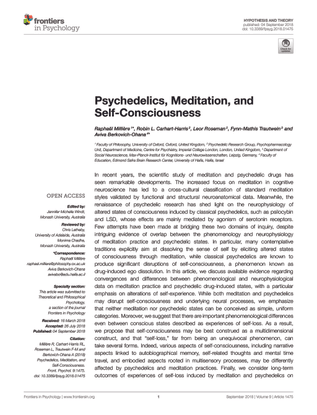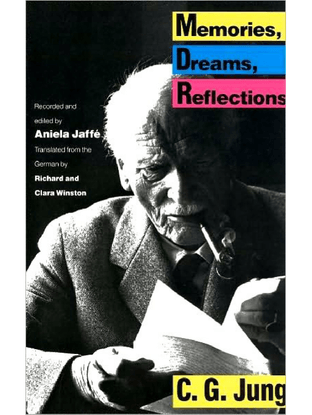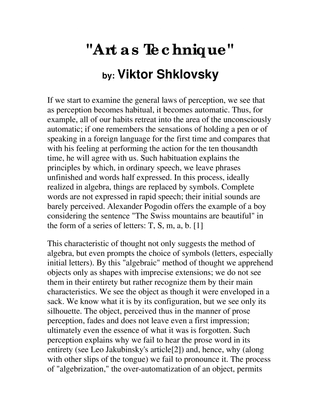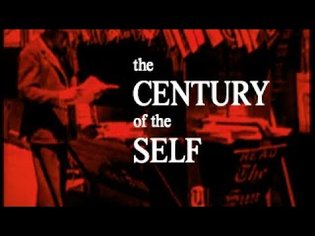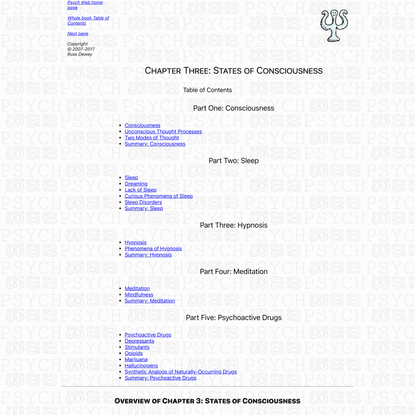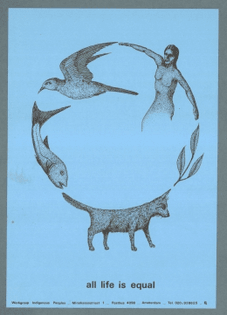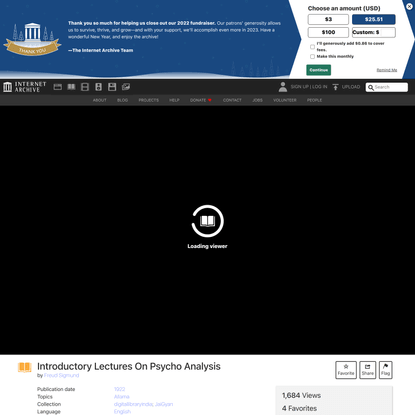Part 1
notes from the BBC's The Century of the Self - Happiness Machines (17 March 2002).
Edward Bernays (https://en.wikipedia.org/wiki/Edward_Bernays), was the nephew of Sigmund Freud.
During WWI, Bernays worked as a propagandist for the US government/Woodrow Wilson.
He adapted propaganda techniques along with his uncle Freud's techniques (i.e. manipulating the unconscious) to use during peace time, calling the practice "public relations" (he is attributed with coining the term).
The most famous example is his campaign to get women to smoke. The cultural value at the time was that women shouldn't smoke; it was taboo.
During New York's annual Easter Day parade, Bernays organized a group of rich debutantes to hide cigarettes, join the parade, and then light up the cigarettes.
Prior the parade, he told the press that suffragettes would be participating in the parade, protesting by lighting up "torches of freedom".
Thus equating cigarettes with women's rights.
The story entered national press, and sale of cigarettes to women began to rise.
Bernays was responsible for turning products into expressions of our own ideologies. For turning sales from an appeal to rational intellect to a practice manipulating irrational emotional responses. Previously, things were promoted on functional and practical terms.
It made him realize "that it was possible to persuade people to behave irrationally if you link products to their emotional desires & feelings…It meant that irrelevant objects could become powerful emotional symbols of how you wanted to be seen by others."
Post-war, there were fears of "overproduction", i.e. producing more than people were willing to buy. At that time, products were bought and sold based on need.
At the time, Paul Mazur, with Lehman Brothers, said:
"We must shift America from a needs to a desires culture. People must be trained to desire, to want new things, even before the old have been entirely consumed. We must shape a new mentality in America. Men's desires must overshadow his needs."
Bernays alas began the practice of product placement, amongst other common marketing techniques, such as getting psychologists to say products were good for you, and issuing them as "independent" studies.
In 1927, an American journalist wrote:
"A change has come over our democracy. It is called consumptionism. The American citizen's first importance to his country is now no longer that of citizen, but that of consumer."
Bernays was also pivotal in bringing public relations to politics. With Calvin Coolidge, a largely unpopular president, he arranged several celebrities to visit and mingle with the President, which was successful in improving his image.
As a result of Bernay's work, Freud became increasingly pessimistic about the nature of men, especially when in crowds.
This pessimism influenced Walter Lippman (amongst others), the leading American political thinker of the time (twice winning the Pulizter), to question the validity of democracy, given such irrationality.
And thus others began seeking means of controlling the masses to avoid these issues of group/mob irrationality. Bernays proposed his own public relations/marketing methods as what he called "the engineering of consent".
President Hoover agreed with Bernays, agreeing that consumerism was now the center of American life. Soon after his election, Hoover told some advertisers/PR men:
"You have taken over the job of creating desire and have transformed people into constantly moving happiness machines. Machines which have become the key to economic progress."
"Both Bernays' and Lippman's concept of managing the masses takes the idea of democracy and it turns it into a palliative. It turns it into giving people some kind of feel good medication, that will respond to an immediate pain or an immediate yearning, but will not alter the objective circumstances one iota. The idea of democracy, at it's heart, was about changing the relations of power that had governed the world for so long. Bernays' concept of democracy was one of maintaining the relations of power, even if it meant that one needed to stimulate the psychological lives of the public. In fact, in his mind, that was what was necessary. If you can keep stimulating the irrational self, then leadership can basically go on doing what it wants to do."
- Stuart Ewen, historian of public relations
The Great Depression (triggered by a stock market crash motivated by the irrationality of crowds, ironically enough) undid much of the economic effects of Bernays' work. People could no longer afford to buy more than they needed. There were riots and aggression across America and Europe.
The effects of the Great Depression in Europe caused Freud to become even more pessimistic about human nature, believing that civilization was not an expression of humanity, but rather it was a means of controlling the dangerous animalistic aspects of people.
Pessimism of the viability of democracy spread and intensified, contributing to the rise of Hitler, who sought to undo democracy, believing that it "unleashed a selfish individualism, but didn't have the means to control it." So fascism was offered as an alternative. Their methods of control, of which Goebbels (the Nazi Minister of Propaganda) was an advocate, were inspired by Bernays' work.
Freud described "libidinal" forces of desire (forces of love) of a group which are submitted to the leader, while the aggressive instincts are unleashed on those outside of the group. While Freud's intent was to warn of these effects, this understanding was a fundamental part of Nazi control.
In the US, Franklin Roosevelt implemented the New Deal to resolve the crisis. The government ran giant industrial projects to provide jobs. Roosevelt believed the stock market crash was proof that laissez-faire capitalism could not work in modern industrialized economies, but rather, the government would need to take a larger role (much to the chagrin of big business).
Roosevelt was much more optimistic of the masses ability to participate in democracy (that they were rational). Under his direction, Gallup and Roper, who were critical of Bernays' work, began polling public opinion, trying to develop systems to understand the public without manipulating them. It was attempt to return the American individual to the role of participatory citizen.
Of course, big business was not happy with Roosevelt, so Bernays began leading an effort (organized under the National Association of Manufacturers, which encompasses all the major corporations of the time) to carry out an ideological war against the New Deal. The strategy was to create public emotional attachment to big business. For example, showing that it was big business that built modern America, not the government. These messages were not only in advertisements and billboards, but also newspapers with pieces like this:

The government responded with public relations of their own, but it could not compete against the force of Bernays, who portrayed capitalism and democracy as deeply linked. At the World Fair, which he advised closely, he portrayed seductive visions of the future as empowered by big business. And again, the American individual's role is as a passive consumer.
Part 2
notes from the BBC's The Century of the Self - The Engineering of Consent (24 March 2002).
Anna Freud (Freud's daughter) believed people could be taught to control their irrationality by encouraging them to conform to society.
She believed this conformity would strengthen their ego (the conscious) over the unconscious, so that they could better control the unconscious impulses.
Truman passed National Mental Health Act to address the mental issues suffered by WWII draft veterans (of which there were many) by training more psychoanalysts and in general proliferating the practice.
The goal was to create a "more rational, but also appropriately emotional, person"
Ernest Dichter, founder of The Institute for Motivational Research, which endeavored to understand human behavior specifically in the context of consumerism (i.e. selling things).
The Institute organized the first focus groups to uncover people's feelings about products.
For instance, uncovering that a barrier to the adoption of Betty Crocker cake mixes was that there was an unconscious feeling of guilt in housewives with regard to how easy it was to use. So Betty Crocker added a step to add in an egg, to increase the participation of the housewife in the cake's creation (and as some kind of symbolism for the wife giving her husband her egg), and sales soared afterwards.
"The Depth Boys" (see http://www.ditext.com/packard/1.html) would consult with corporations to show how aspects of their products relate to emotional/unconscious desires of their consumers. Products improving your self-image, etc.
Amongst a political elite, the belief was that it was necessary to apply these psychoanalysis techniques to the masses in order to preserve the stability of democracy. It wasn't seen as undermining democracy, but as preserving it.
Bernays believed that, instead of calming fears of communism, the fears should be encouraged as a means of control.
For example:
The United Fruit Company, which is an American company, in Guatemala.
The United Fruit Company had a monopoly on the arable land of Guatemala.
Guatemala was a "banana republic", dependent on a single resource product (here, bananas) controlled by dictators with relationships with the company which allowed the company to act like this.
A general (Jacobo Arbenz Guzman) was elected who enacted reforms to remove United Fruit's control over the country (taking away their land).
The United Fruit Company hired Bernays to help.
Bernays spun the issue into one of politics, rather than about a company wanted to retain control over Guatemalan land. The issue was framed as a country close to the US under Soviet-influenced Communist rule (although Arbenz was a socialist democrat with no ties to the Soviets), and exploited the "Red Scare" in the US. Bernays created a fake independent news agency through which he bombarded the media with this propaganda. In 1954, such framing of the issue led the CIA to undertake a covert operation, Operation PBSUCCESS, to overthrow Guatemalan President Jacobo Arbenz Guzman. The attacks were framed by Bernays as a liberating force.
Dr. Ewen Cameron believed the irrational part of people could be completely eradicated (rather than merely controlled). He carried out experiments trying to brainwash people through techniques such as LSD (acid) and ECT (electroconvulsive therapy). Then, into this "empty brain" he would try to "program" the brain into the desired person.
But the experiments were disasters, producing only many people with memory loss.
Marcuse challenged Anna Freud's ideas of conformity and controlling irrationality by saying that conformity represses the natural emotionality of people and thus exacerbates its negative effects. Marcuse believed that society channels these emotions into violence, and so on; they are not the natural expressions of innate human emotions. Whatever propensity we have for violence and other such behavior is a product of society, and not natural.
Part 3
notes from the BBC's The Century of the Self - There is a Policeman Inside All Our Heads: He Must Be Destroyed (31 March 2002).
Then, from a minority of psychoanalysts (led by Wilhelm Reich, a sort of adversary for Freud) came the approach that these inner emotions should not be repressed, but should be expressed. For instance, if you are angry, scream. They held the belief that these feelings were good; that society's repression is what distorted them into something dangerous (completely opposing Freud's more pessimistic view of these emotions). In particular, society's suppression of libidinal energy (i.e. sexual energy/the libido) was problematic.
Some of Reich's disciples started the Esalen Institute (1960s), which sought to free people from the subconscious controls being used against them. Fritz Perls was the predominant figure of the Institute, pushing individuals to publicly express the feelings inside of them (the feelings that society had deemed too dangerous if repressed) in "encounter groups". The belief was that this expression would liberate the individual from social conditioning.
In the late 1960s/early 1970s, the popularity of Esalen grew into a "human potential" movement.
Personal transformation was positioned as the means for political and social transformation.
The Esalen Institute attempted to apply these techniques to race issues, by putting white and black radicals together and letting them express their raw emotions as individuals (i.e. free from the context of race). The results were "a disaster". Group membership was a powerful aspect of their identity as individuals; positioning them as individuals removed an important part of their person.
The approach of the Esalen Institute translated into a broader movement focusing on "self exploration" and "self expression". This movement worried corporate interests because people were becoming less predictable consumers (i.e. they were nonconformist). But then it was realized that these were merely new consumers, who wanted ways of expressing their individuality, their deviation from conformist society.
This required more variety in available products. At the time, the processes of manufacturing were set up to mass produce with little variation, i.e. for a conformist society.
Werner Erhard invented a system called EST (Erhard Seminar Training) which taught people "how to be themselves". He believed that the human potential movement was too limiting; that it still believed there was a core, "true" self common to all people. He believed that there was no fixed self, that you could "be anything that you wanted to be".
The seminars were very intense; participants had to sign waivers that they would not leave the session, and that the trainers could do anything they thought necessary to break down their socially constructed identities, until the participant saw that there was no core self after everything else had been stripped away. This idea was supposed to liberating, "because it is only from nothing that you can create…from this nothing, people were able to invent a life, allowing them to create themselves, invent themselves" (Werner Erhard).
"What Erhard did was to say that only the individual matters. That there is no societal concern. That you living a fulfilled life is all you need be concerned about. EST people came out of those trainings feeling that it wasn't selfish to think about yourself. It was your highest duty."
- Jesse Kornbluth, Journalist
EST became very popular amongst many Americans, including celebrities. Over time, however, the original political motivations of the human potential movement - that is, enacting societal and political change, challenging the state, through self expression and exploration - was lost.
Instead, the idea that was being put forth was that "people could be happy simply within themselves, and that changing society was irrelevant".
This idea proliferated rapidly through books and television over the course of the 1970s, reaching the majority of the population by the 1980s.
Abraham Maslow's Hierarchy of Needs provided a starting point for corporate interests to begin categorizing people based on desire and drives rather than classes. Surveys were sent out, which consumers were surprisingly more than willing to fill out, to start learning about what sort of categorizations could be applied to the new consumers.
The primary group to be found was a large and growing one that cut across all classes, the "inner-directeds" (i.e. self-actualizers), who felt they were defined not by their place in society, but by the choices they made.
SRI, the research institute charged with managing this new world of "unpredictable" consumers, were able to use these results to categorize consumers of different modes of self-expression into what they called "values and lifestyles". For instance "inner-directeds", "experientials", "I-am-me's", "socially conscious".
This marked the beginning of "lifestyle marketing". Its ability to predict taste went beyond merely products, but also to, for example, which politicians a particular lifestyle/consumer would elect.
Reagan built his presidential campaign on the ideas of individual freedoms, which many at the time - both fellow republicans, the press, and others - thought was political "suicide". But it was very successful (it polled very well). Traditional polls had a hard time discerning a pattern of who his supporters were (across class, age, or gender). But applying the lifestyle model made it clear - it appealed to the "inner-directeds". Even though the people who were categorized as inner-directed are not the people you would typically expect to vote conservative, they did. So this lifestyle model was a much more accurate predictor of these predilections. (Same goes for Thatcher).
The product development process was turned around. Focus groups were now used to explore the desires of these lifestyle groups, and new products were developed according to those discoveries (as opposed to first developing products, and then seeing how they could be cast in a way appealing to the lifestyle groups).
The results of this new lifestyle approach was that it caused the people originally turned off by consumerism because of its implicit conformism to begin embracing this consumerism, because it enabled them to express and be their self.
Ironically, this is at odds with the human potential movement's original ideas that you were free to create your own identity. Instead, you buy into one.
Part 4
notes from the BBC's The Century of the Self - Eight People Sipping Wine in Kettering (7 April 2002).
So "the idea that has come to dominate our society...is the belief that the satisfaction of individual feelings and desires is our highest priority."
These ideas began in the realm of business, for the purpose of selling things to consumers. But they eventually made their way into politics, appealing to individuality and uniqueness (rather than social classes) and giving people what they want (i.e. appeal to individual satisfaction), rather than what they "ought" to have. Reagan and Thatcher led this change.
In general, the rise of individualism. People want to be part of a group, but still stand out from it.
The profession of public relations, once considered seedy, was now become prestigious.
Some parts of press began to incorporate advertising into their articles (i.e. stories about celebrities with photos of the celebrity with the product).
The left, in the US and the UK, usually tried to appeal to a sense of social welfare, that is the needs of the collective over the desires of the individual. But after they began losing elections (their supporters were seduced by the rhetoric around individuality and switched to Thatcher), they too began to appeal to individualism, beginning with Philip Gould (a former ad exec and a member of the UK's Labor Party) and Peter Mandelson.
Gould used focus groups to understand the voters' desires and feelings. "People were encouraged not to talk rationally about policies, but to express their underlying feelings. And what Gould discovered was a fundamental shift in people's relationship to politics. They no longer saw themselves as part of any group, but as individuals who could demand things from politicians in return for paying taxes. Just as business had taught them to do as consumers."
Gould: "And I found that people had become consumers, people now wanted to have politics and life on their own terms. Not just in politics, but in all aspects of life too. People see themselves as they are, as autonomous, powerful individuals who are entitled to be respected, who are entitled to have the best in terms of health and education too."
Gould and others would use the focus groups to learn voters' desires, then design policies to appeal to those desires. Political campaigning began to be focused around these techniques. It seemed a lot of it was about lowering taxes (tax cuts) or not using taxes to support a welfare state.
Clinton used these techniques to garner support and get into office, but when elected, would act along more traditional lines (such as supporting welfare policies, increasing taxes on the rich, while still giving the promised tax cuts to the middle class). But when Clinton took office, the size of the budget deficit was much greater than anticipated, so Clinton was unable to give the promised tax cuts and instead reverted to more traditional politics appealing to ideas beyond the individual to gain support for the welfare policies. This did not go over well; during the congressional elections, Newt Gingrich appealed to people in the Reagan-Thatcher style, promising tax cuts, and many of Clinton's middle class supporters backed Gingrich, so that Clinton no longer had the cooperation of Congress.
Clinton turned to help from Dick Morris, a "ruthless political strategist".
"What Morris told Clinton was that to win reelection, he would have transform the very nature of politics. The crucial swing voters in the suburbs now thought and behaved like consumers. The only way to win them back was to forget all ideology and instead turn politics into a form of consumer business. Clinton must try to identify their personal desires and whims, and the promise to fulfill them."
Dick Morris: "I said that I felt the most important thing for him to do was to bring to the political system the same 'consumer rules' philosophy that the business community has. Because I think politics needs to be as responsive to the whims and the desires of the marketplace as business is. And it needs to be as sensitive to the bottom line, profits or votes, as a business is. I think that all of this involves really a changed view of the voters. So that instead of treating them as targets, you treat them as owners. Instead of treating them as something you can manipulate, you treat them as something you need to learn from. And instead of feeling that you can stay in one place, and you can manipulate the voters, you need to learn what they want and move yourself to accommodate them."
Dick Morris began applying lifestyle marketing techniques to politics, to uncover the lifestyle types of swing voters. So Clinton began enacting less ambitious policies tailored to the worries of these particular lifestyles (e.g. V-Chips to prevent pornography on television to protect children). Morris encouraged Clinton to spend his leisure time pursuing activities that were characteristic of these lifestyles, such as hunting.
Robert Reich, member of Clinton's cabinet: "I would say [to Clinton] why have a campaign? … If all the president is going to do is offer up these little bite-size miniature initiatives that appeal to people's desires, like consumers buying soap. V-Chips, that you could put in your televisions, so you could make sure that your children did not have pornography, and school uniforms. Why talk about them? They're so mundane, and they're so tiny. And he would sit back, 'If we don't do this, we may not get reelected.' And I would say, 'What's the point of getting reelected if you have no mandate to do anything when you're reelected?' And he'd say, 'What's the point of having a mandate if you can't get reelected? Isn't the ultimate goal getting reelected?'"
Call centers, setup by political strategist Mark Penn, were setup to call swing voters and ask them about policies Clinton was proposing, asking questions like "would you be more likely to support him if he offered this government service, or if he offered this one?" And the results of these would bubble up to Clinton and then be enacted as policy.
Robert Reich: "Dick Morris and the pollsters had won. And by that I mean that the people who ultimately got to the president, shaped the president's mind, were those who viewed the voters as just a collection of individual desires that had to be catered to and pandered to. It suggests that democracy is nothing more, and should be nothing more, than the pandering to these unthought about, very primitive desires. Primitive in the sense that they are not even necessarily conscious, just what people want in terms of satisfying themselves."
The UK (New) Labour Party used these tactics as well to successfully elect Tony Blair. The Labour Party was traditionally seen as the force protecting people from business and the free market, but now consumers no longer saw themselves as exploited by the free market.
Derek Draper, assistant to Peter Mandelson: "What New Labor did was suit people who exert power in society not through the political system, or not through the democratic political system, so it suits big business and it suits entrenched interests and it suits the status quo. Those three things, of course, just off the top of my head, being the things the Labor Party is supposed to be a counterforce to. What that means is big business gets to carry on, exerting their power behind the scenes, getting their way because there's no countervailing pressure, countervailing pressure isn't going to come from, you know, eight people sipping wine in Kettering."
"It's not that the people are in charge, but that the people's desires are in charge. The people are not in charge, the people exercise no decision making power within this environment. So democracy is reduced from something which assumes an act of citizenry to something which now increasingly is predicated on the idea of the public as passive consumers. The public as people who essentially what you're delivering them are doggie treats."
- Stuart Ewen, historian of public relations
"The problem for New Labor was that it believed the propaganda."
Derek Draper:
"The point about focus group politics is that there isn't one, because people are contradictory, irrational, and so you have a problem in terms of deciding what you're going to do, if all you do is actually listen to a mass of individual opinions that are forever fluctuating and don't really have any coherence, and crucially you're not setting context. So that's why people can say, you know, I want lower taxes and better public services. Well, of course they do. You say, do you want pay more taxes to get better public services, people are less sure. They then don't believe that if they do pay more taxes they will be spent on better public services, so you end up in this quagmire, the truth is a politician has to say look this is what I believe, I believe that you should pay slightly more taxes to make better public services, and I pledge that I am competent enough to actually use that money wisely. Do you want that vote for me, yes or no? And that's what Blair has failed to do. Tony Blair turns around and tries to feedback to them what they already believe. And given that what they believe is sort of a load of individual incoherent contradictory nonsense, that's all that he has to offer. And then he wonders why people don't get him. That's why they don't get him, it's because they're looking for someone to do something they can't do themselves, which is actually come up with a coherent political opinion that they might have faith in."
For example:
For much of the Labor Party's first term, focus groups said the railways were not a high priority. So, accordingly, Labor's policies reflected this.
But later those same groups blamed the government for not investing in those railways sooner.
"New Labor are faced with a dilemma. The system of consumer democracy that they have embraced has trapped them into a series of short-term and often contradictory policies. There are now growing demands that they fulfill a grander mission. That they use the power of government to deal with the problems of growing inequality and the decaying social fabric of the country. But to do this, they will have to appeal to the electorate to think outside their own self-interest. And this would mean challenging the now-dominant Freudian view of human beings, as selfish, instinct-driven individuals. Which is a concept of human beings that has been fostered and encouraged by business because it produces ideal consumers."

